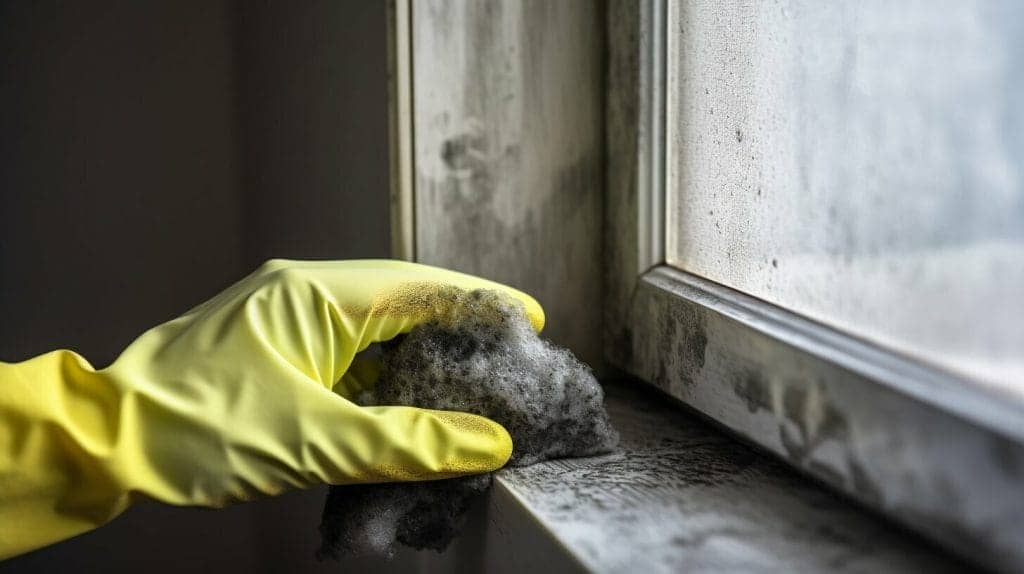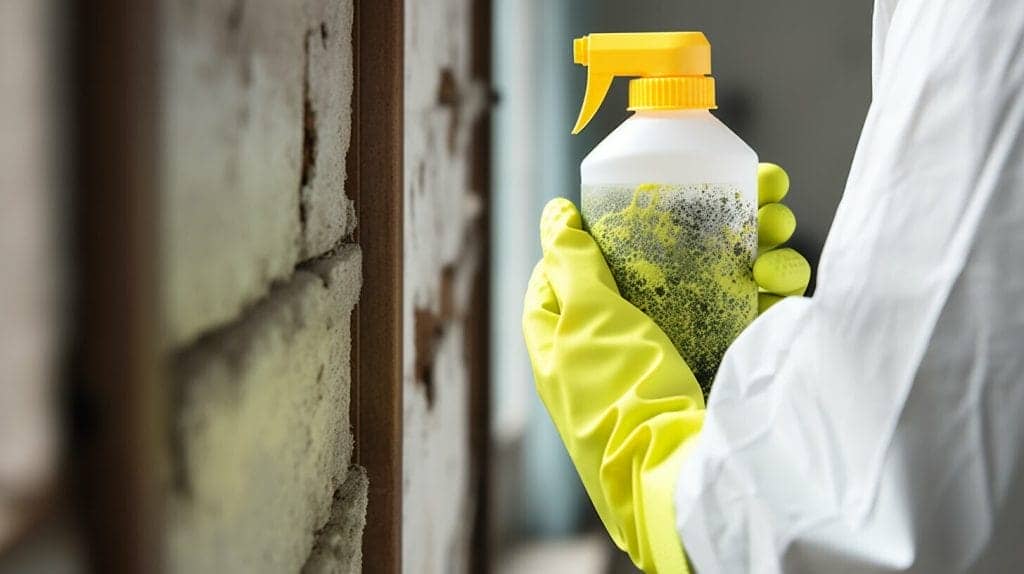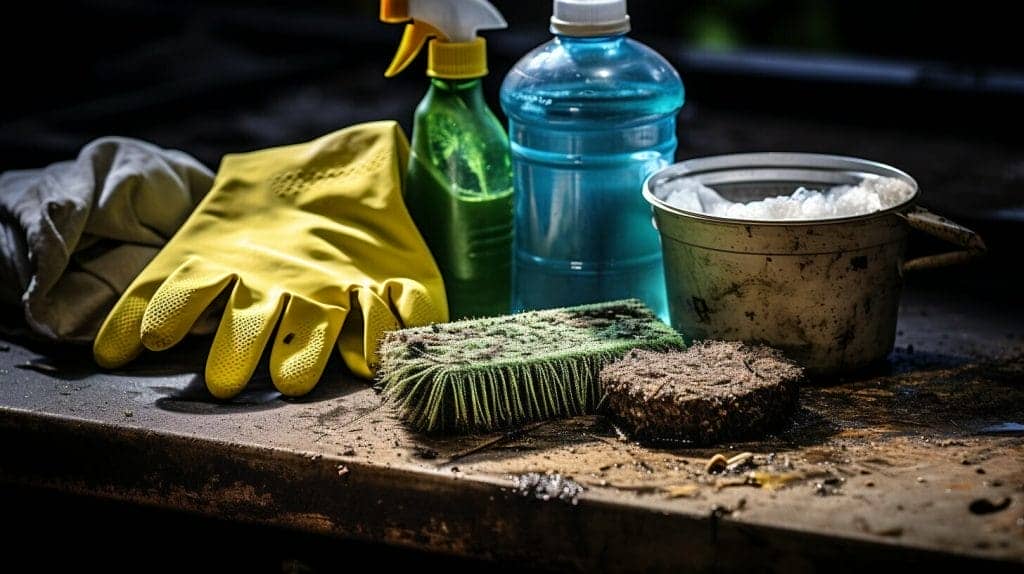Mold exposure can cause a range of health problems, including respiratory issues like mold cough. If you suspect that you have mold-related symptoms, seeking expert solutions for relief and prevention is essential. In this article, we’ll discuss what mold cough is and its symptoms, how it’s caused, and the various treatments available. We’ll also explore natural and holistic remedies for mold cough, as well as tips for preventing and managing symptoms. Whether you’re dealing with mold cough yourself or seeking information for a loved one, this article will provide valuable insights and advice.
What is Mold Cough?
Mold cough is a respiratory condition caused by exposure to mold spores. When ingested or inhaled, mold spores can irritate the respiratory tract, leading to various symptoms, including coughing.
Symptoms of mold cough can include:
- Excessive coughing
- Coughing up phlegm
- Tightness in the chest
- Shortness of breath
- Wheezing or whistling when breathing
Mold cough is different from other types of coughs, such as those caused by a cold or flu virus. While these types of coughs are usually short-lived and go away on their own, mold cough can worsen over time and may require medical attention.
How is Mold Cough Caused?
Exposure to mold can cause a wide range of symptoms, including coughing. When mold spores are inhaled, they can irritate the respiratory tract and trigger an immune response, leading to inflammation and a cough. Mold cough is most common in individuals with weakened immune systems, such as people with allergies, asthma, or other respiratory conditions.
Mold can grow anywhere with moisture and oxygen, so it’s important to be mindful of potential sources of mold in your environment. Common areas for mold growth include bathrooms, kitchens, basements, and areas with water damage. Mold can also be found outdoors in damp or humid conditions.
| Factors that can increase the risk of mold exposure include: |
|---|
| Living in a humid climate |
| Living in a poorly ventilated home or building |
| Working in a job that involves exposure to mold, such as farming or construction |
| Having a history of respiratory conditions or allergies |
If you suspect that mold exposure is causing your cough, it’s important to take steps to reduce your exposure and seek medical attention if your symptoms persist or worsen.
Diagnosis of Mold Cough
Diagnosing mold cough can be challenging as the symptoms are similar to those of other respiratory conditions. A healthcare professional will typically begin by taking a detailed medical history to identify any potential mold exposure and rule out other causes of coughing.
Several tests may be conducted to diagnose mold cough, including:
| Test | Description |
|---|---|
| Physical exam | Examination of the throat, nose, chest, and lungs to look for signs of inflammation or congestion. |
| X-rays or CT scan | To assess the extent of lung damage and eliminate other potential causes of coughing such as pneumonia or bronchitis. |
| Allergy tests | To identify the specific allergen triggering the immune system response. |
| Breathing tests | To evaluate lung function and identify any breathing difficulties or abnormalities. |
When to See a Doctor for Mold Cough Diagnosis
If you experience persistent coughing that lasts longer than a week, it’s essential to consult with a healthcare professional to determine the underlying cause. Seek medical attention immediately if you experience severe coughing, fever, chest pain, difficulty breathing, or coughing up blood, as these may indicate a more serious condition.
Conventional Mold Cough Treatment
Conventional treatments for mold cough vary and depend on the severity of the symptoms. Here are some options that your doctor may prescribe:
| Treatment | Description |
|---|---|
| Antihistamines | Antihistamines can help reduce inflammation and allergic reactions in the body, which can help alleviate coughing. |
| Decongestants | Decongestants can help relieve nasal congestion and post-nasal drip, which can trigger coughing. |
| Corticosteroids | Corticosteroids are powerful anti-inflammatory drugs that can help reduce swelling and inflammation in the airways, making it easier to breathe. |
| Antibiotics | If mold cough has led to a bacterial infection, antibiotics may be necessary to treat the infection. |
Your doctor may also suggest lifestyle changes to help reduce your exposure to mold, such as using air purifiers, repairing leaks, and cleaning your home regularly to prevent mold growth.
Natural Remedies for Mold Cough
While conventional treatments for mold cough can be effective, some individuals may prefer to explore natural remedies to alleviate their symptoms. There are several natural options that have been shown to offer relief:
1. Saltwater Gargle
Gargling with salt water can help soothe a sore throat and reduce coughing. Mix 1 teaspoon of salt into a glass of warm water and gargle for 30 seconds before spitting it out. Repeat as needed.
2. Ginger
Ginger has anti-inflammatory properties that may help reduce inflammation in the airways and alleviate coughing. Try adding fresh ginger to your meals, drinking ginger tea, or taking ginger supplements.
3. Honey
Honey has natural antibacterial properties that can help reduce coughing and soothe a sore throat. Add a spoonful of honey to warm water or tea, or mix it with lemon juice to create a homemade cough syrup.
4. Peppermint
Peppermint contains menthol, which can help relax the muscles in the airways and reduce coughing. Try drinking peppermint tea or inhaling peppermint oil to experience its soothing effects.
5. Eucalyptus
Eucalyptus oil has anti-inflammatory properties that can help reduce inflammation in the airways and alleviate coughing. Try inhaling eucalyptus oil by adding a few drops to a bowl of hot water and breathing in the steam.
Before trying any natural remedies, it’s important to talk to your doctor to ensure they won’t interfere with any medications or treatments you may be receiving.
Effective Remedies for Mold Cough
If you are suffering from mold cough, you are likely looking for relief. Here are some effective remedies that have been scientifically proven to relieve symptoms:
| Remedy | Description |
|---|---|
| Antihistamines | Antihistamines can help reduce inflammation and relieve itching, sneezing, and runny nose caused by mold exposure. |
| Nasal corticosteroids | Nasal corticosteroids can reduce inflammation and swelling in the nasal passages, making it easier to breathe. |
| Decongestants | Decongestants can help relieve congestion and make it easier to breathe through the nose. |
| Air purifiers | Air purifiers can help remove mold spores from the air, reducing the amount you inhale. |
| Natural remedies | Herbs like ginger and turmeric have natural anti-inflammatory properties that can help reduce symptoms. Honey and lemon are also effective natural cough remedies. |
It’s important to note that while these remedies may provide relief from symptoms, they may not address the underlying cause of mold exposure. It’s always best to seek expert solutions for long-term relief and prevention.
Preventing Mold Cough
Preventing mold exposure is the best way to avoid developing mold cough. Here are some tips to help you minimize your risk:
- Repair any water leaks or damage immediately to prevent mold growth.
- Use a dehumidifier in humid areas of your home to keep moisture levels low.
- Clean and dry any areas that have been affected by flooding or water damage within 24-48 hours.
- Keep your home well-ventilated to promote air circulation and minimize humidity.
- Regularly clean and maintain your heating, ventilation, and air conditioning (HVAC) system to prevent mold buildup.
- Avoid carpeting in damp areas of your home, such as basements and bathrooms.
- Use mold-resistant paint or caulking in areas that are prone to moisture, such as bathrooms and kitchens.
By taking these steps, you can reduce your risk of mold exposure and prevent mold cough from developing.
Preventing Mold Cough
Mold exposure is the primary cause of mold cough, so the best prevention strategy is to limit your exposure to mold. Here are some tips to help you prevent mold cough:
- Control humidity levels in your home by using dehumidifiers or air conditioners
- Clean and dry any areas affected by water damage within 24-48 hours
- Regularly clean and maintain your home’s HVAC system
- Avoid carpeting in areas that are prone to moisture, like bathrooms and basements
- Keep indoor plants to a minimum, as they can promote mold growth
- Regularly clean and dust your home, paying special attention to areas like bathrooms, kitchens, and basements
It’s important to note that some people may be more susceptible to mold-related symptoms due to underlying health conditions or a weakened immune system. If you fall into one of these categories, taking extra precautions to limit your exposure to mold is especially important.
Best Treatments for Mold Cough
When it comes to mold cough, there are both conventional and natural remedies available. The most effective treatment plan will depend on the severity of the symptoms and individual preferences. Here are some of the most highly recommended treatments:
| Treatment | Description |
|---|---|
| Antihistamines | These medications can help relieve nasal congestion, runny nose, and other allergy symptoms that may be caused by mold exposure. |
| Bronchodilators | These medications can help relax the airways and improve breathing for people with asthma or other respiratory conditions that may be exacerbated by mold exposure. |
| Corticosteroids | These medications can help reduce inflammation and swelling in the lungs and airways caused by mold exposure. |
| Immunotherapy | Also known as allergy shots, immunotherapy can help desensitize the body to mold and other allergens over time. |
| Nasal irrigation | Also known as a neti pot, nasal irrigation involves flushing the sinuses with a saline solution to reduce congestion and remove irritants. |
| Humidifier | A humidifier can help keep the air moist and reduce irritation to the nasal passages and airways caused by dry air. |
| Air purifier | An air purifier with a HEPA filter can help remove mold spores and other allergens from the air. |
| Herbs and supplements | Various herbs and supplements, such as ginger, turmeric, and vitamin C, may have anti-inflammatory or immune-boosting properties that could help relieve mold cough symptoms. |
It’s important to note that while these treatments can be effective for some people, there is no one-size-fits-all solution for mold cough. It’s always a good idea to consult with a healthcare professional before starting any new treatment plan.
Holistic Approaches to Treat Mold Cough
While conventional treatments for mold cough can provide relief, some individuals may prefer to explore alternative, holistic approaches to managing their symptoms. These approaches may include:
- Dietary changes: Some foods may exacerbate inflammation and respiratory symptoms, while others may help reduce them. Eating a balanced diet rich in anti-inflammatory foods, such as fruits, vegetables, whole grains, and healthy fats, may be beneficial for individuals with mold cough.
- Lifestyle modifications: Reducing exposure to irritants, such as tobacco smoke and air pollutants, may help alleviate symptoms. Practicing stress-reducing activities, such as yoga or meditation, may also help improve overall respiratory health.
- Herbal remedies: Certain herbs, such as ginger, turmeric, and peppermint, have anti-inflammatory and expectorant properties that may provide relief for respiratory symptoms. However, it is important to consult with a healthcare provider before using herbs as a treatment.
- Acupuncture: This traditional Chinese medicine practice involves inserting thin needles into specific points on the body to stimulate healing. Acupuncture may help alleviate symptoms of respiratory conditions, including mold cough.
- Homeopathy: This alternative medicine practice is based on the principle that “like cures like,” and involves using highly diluted substances to stimulate the body’s natural healing processes. Homeopathic remedies may be helpful for treating mold cough, but more research is needed to establish their effectiveness.
Consulting with a Healthcare Provider
It is important to keep in mind that while holistic approaches may be beneficial for managing mold cough symptoms, they are not a substitute for medical treatment. Individuals should always consult with a healthcare provider before attempting to use alternative remedies, as they may interact with other medications or have harmful side effects.
Mold Cough and Health Risks
Mold exposure can cause a range of health problems, including mold cough. While mold cough is typically not life-threatening, it can be a sign of more serious health risks.
For individuals with asthma or other respiratory conditions, exposure to mold can exacerbate symptoms and increase the risk of developing infections like pneumonia. Long-term mold exposure can also cause chronic bronchitis, lung inflammation, and other respiratory issues.
Additionally, certain types of mold can produce mycotoxins, which can cause severe health problems in some individuals. Symptoms of mycotoxin exposure may include respiratory distress, headaches, fatigue, and neurological problems.
If you suspect that you have been exposed to mold or are experiencing mold cough symptoms, it is important to consult with a healthcare professional. They can help you identify the underlying causes of your symptoms and develop an appropriate treatment plan.
Mold Cough and Children
Children can be particularly vulnerable to mold exposure and may experience more severe symptoms of mold cough than adults. Their smaller lungs and immune systems may struggle to fight off the effects of mold spores, leading to persistent coughing and other respiratory problems. Additionally, children spend more time indoors than adults, increasing their exposure to mold in damp environments.
If you suspect your child may have mold cough, it is important to seek medical attention promptly. A healthcare provider can diagnose the condition and recommend appropriate treatment options. In the meantime, there are several steps you can take to minimize your child’s exposure to mold:
- Keep indoor humidity levels below 60 percent
- Use an air purifier with a HEPA filter
- Regularly clean and vacuum carpets and upholstery
- Ensure proper ventilation in bathrooms and kitchens
- Regularly inspect potential mold sources, such as plumbing and roofing
It is also important to discuss any concerns about mold exposure with your child’s school or daycare provider. They can take steps to ensure that the environment is free from mold and other potential allergens.
When to See a Doctor
If you suspect that you may have mold cough, it is important to consult with a healthcare provider as soon as possible. A doctor can help diagnose your symptoms and determine the most effective treatment plan for you.
It is particularly important to seek medical attention if your symptoms are severe or if you have a pre-existing medical condition that may be exacerbated by mold exposure.
When you see a doctor, be prepared to provide information about your symptoms, including when they first started and how they have progressed over time. Your doctor may also ask about your living and working environments to assess your risk of mold exposure.
During the appointment, your doctor may perform a physical exam and order diagnostic tests, such as blood tests, imaging studies, and allergy testing. Based on the results of these tests, your doctor may recommend conventional or alternative treatments to relieve your symptoms and prevent further complications.
Living with Mold Cough: Coping Strategies
Living with mold cough can be challenging, but there are coping strategies that can help you manage your symptoms and improve your overall well-being. Here are some tips to help you cope:
1. Reduce your exposure to mold
The best way to manage mold cough is to avoid exposure to mold. Take steps to reduce the amount of mold in your environment, such as fixing water leaks, improving ventilation, and using a dehumidifier. You can also wear a mask when cleaning or working in areas with mold.
2. Practice good self-care
Take care of yourself physically and emotionally by getting enough sleep, eating a balanced diet, and managing stress. Mold exposure can weaken the immune system, so it’s important to stay healthy overall.
3. Seek social support
Living with mold cough can be isolating, but it’s important to stay connected with friends and family for emotional support. Joining a support group or seeking professional counseling can also be helpful.
4. Manage your symptoms
There are a variety of remedies and treatments that can help relieve the symptoms of mold cough. Talk to your doctor about what options are best for you.
5. Stay informed
Keep up-to-date with news and information about mold exposure and treatments for mold-related illnesses. This can help you make informed decisions about your health and well-being.
FAQ
Q: What are the best treatments for mold cough?
A: The most effective treatments for mold cough include addressing the root cause of the mold exposure, such as fixing any leaks or humidity issues in your home. Additionally, natural remedies such as ginger, honey, and eucalyptus oil can provide relief, as can over-the-counter cough suppressants.
Q: Are there any natural remedies that can help me manage mold cough?
A: Yes, natural remedies such as ginger, turmeric, and garlic can help to reduce inflammation and soothe the respiratory system. Additionally, steam therapy and saline nasal rinses can provide relief.
Q: What are the health risks associated with mold cough?
A: Prolonged exposure to mold can lead to a variety of health problems, including respiratory infections, allergies, and asthma. It’s important to seek treatment for mold cough as soon as possible to prevent further health complications.
Q: Can children develop mold cough?
A: Yes, children are susceptible to mold cough just like adults. It’s important to monitor children who have been exposed to mold and seek medical attention if they develop symptoms such as coughing or difficulty breathing.
Q: When should I see a doctor for mold cough?
A: If your mold cough persists for more than a few weeks or is accompanied by other symptoms such as fever, chest pain, or difficulty breathing, it’s important to seek medical attention. Your doctor can perform tests to identify the root cause of your symptoms and recommend appropriate treatment.
Q:
A:
Dr. Francisco Contreras, MD is a renowned integrative medical physician with over 20 years of dedicated experience in the field of integrative medicine. As the Medical Director of the Oasis of Hope Hospital in Tijuana, Mexico, he has pioneered innovative treatments and integrative approaches that have been recognized globally for the treatment of cancer, Lyme Disease, Mold Toxicity, and chronic disease using alternative treatment modalities. Dr. Contreras holds a medical degree from the Autonomous University of Mexico in Toluca, and speciality in surgical oncology from the University of Vienna in Austria.
Under his visionary leadership, the Oasis of Hope Hospital has emerged as a leading institution, renowned for its innovative treatments and patient-centric approach for treating cancer, Lyme Disease, Mold Toxicity, Long-Haul COVID, and chronic disease. The hospital, under Dr. Contreras's guidance, has successfully treated thousands of patients, many of whom traveled from different parts of the world, seeking the unique and compassionate care the institution offers.
Dr. Contreras has contributed to numerous research papers, articles, and medical journals, solidifying his expertise in the realm of integrative medicine. His commitment to patient care and evidence-based treatments has earned him a reputation for trustworthiness and excellence. Dr. Contreras is frequently invited to speak at international conferences and has been featured on CNN, WMAR2 News, KGUN9 News, Tyent USA, and various others for his groundbreaking work. His dedication to the medical community and his patients is unwavering, making him a leading authority in the field.
Contreras has authored and co-authored several books concerning integrative therapy, cancer, Lyme Disease and heart disease prevention and chronic illness, including "The Art Science of Undermining Cancer", "The Art & Science of Undermining Cancer: Strategies to Slow, Control, Reverse", "Look Younger, Live Longer: 10 Steps to Reverse Aging and Live a Vibrant Life", "The Coming Cancer Cure Your Guide to effective alternative, conventional and integrative therapies", "Hope Medicine & Healing", "Health in the 21st Century: Will Doctors Survive?", "Healthy Heart: An alternative guide to a healthy heart", “The Hope of Living Cancer Free”, “Hope Of Living Long And Well: 10 Steps to look younger, feel better, live longer” “Fighting Cancer 20 Different Ways”, "50 Critical Cancer Answers: Your Personal Battle Plan for Beating Cancer", "To Beat . . . Or Not to Beat?", and “Dismantling Cancer.”






















